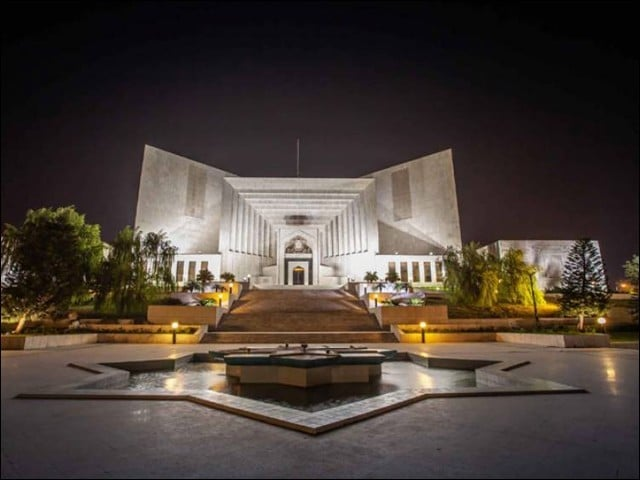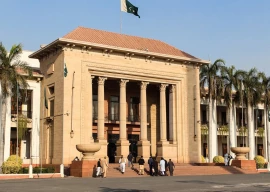
Despite the withdrawal of the Sindh Bar Council (SBC), two members of the provincial regulatory body are determined to pursue the petition challenging amendments in the army as well as the official secrets acts.
"It is submitted on behalf of Petitioners No 1 and 2 (Sindh Bar Council) that the subject Petition was filed without prior approval of the Full House or any of its Committee, therefore, the name of Sindh Bar Council and the Vice Chairman may be deleted from the Petition and the undersigned will file a fresh after approval from the Full House of the Sindh Bar Council in its upcoming Meeting; after further decision as per majority view in accordance with law," the statement submitted by SBC vice chairman in the apex court read.
However, two SBC members, who are the petitioners, refused to withdraw the petition against trial of civilians in military courts.
SBC Executive Committee Chairman Naeemuddin Qureshi as well as member Syed Haider Imam Rizvi in their individual capacities filed an appeal against the SC Registrar Office’s objections over the constitutional petition.
The SC in its Sept 14 order raised objections over the petition.
Both the petitioners through Salahuddin Ahmed Advocate contended that the “SC registrar does not have the jurisdiction to determine questions of maintainability or entertainability of a petition on the touchstone of Article 184(3) insofar as such judicial determination can only be exercised by a Bench of not less than two Judges of this Hon’ble Court under Order XXV Rule 7 of the Rules as decided by this Hon’ble Court in the case of All Pakistan Newspapers Society vs Federation of Pakistan”.
Read Imran challenges tweaks to army, secrets acts
It was also submitted that the petition challenged the trial of civilians under the Pakistan Army Act 1952, the Pakistan Air Force Act 1953 and the Pakistan Navy Ordinance 1961 before military tribunals.
"The petition impugns, therefore, the vires of the sections 2(d), 59 (4) and 94 of the Pakistan Army Act 1952 and sections 2 (dd), 71 (3) and 123 of the Pakistan Airforce Act 1953 and sections 2 (3), 78 (3) and 107 of the Pakistan Navy Ordinance 1961.”
It stated, “Extending the jurisdiction of military laws and tribunals to persons who are not subject to military command and discipline violates the essential features of our Constitution and infringes the Fundamental Rights of citizens as enshrined under the Constitution.
“Moreover, for the same and other reasons, the instant petition challenges the vires of the recently notified purported Official Secrets (Amendment) Act 2023 and Pakistan Army (Amendment) Act 2023 both on account of lack of Presidential Assent as well as having created new offences that extend the scope for civilians to be tried before military courts under military laws."
It added, “This is clearly an issue of immense public importance relating to the independence of judiciary, the right to life and liberty, and due process and fair trial in criminal proceedings guaranteed, inter alia, by articles 9, 10 and 10-A of the Constitution and earlier related issues have already previously been entertained by the Supreme Court under Article 184 (3). As such, the objection is unfounded.
"It is submitted that it is not for the Registrar to determine whether there is an alternate remedy to the instant petition or not. That is a judicial function. Even otherwise, there is no alternative remedy available to the Petitioners as the issues raised herein pertain to Pakistan as a whole and not a particular province.”
Moreover, the petition stated, “The jurisdiction of some of the High Courts have been taken away on account of invocation of Article 245 of the Constitution by the Federal Government. Finally, and in event, it is well settled that availability of an alternate remedy is not a bar to the exercise of jurisdiction under Article 184 (3) of the Constitution.”




1728127649-0/BeFunky-collage-(2)1728127649-0-165x106.webp)
1727242355-0/Diddy-(1)1727242355-0-165x106.webp)












COMMENTS
Comments are moderated and generally will be posted if they are on-topic and not abusive.
For more information, please see our Comments FAQ